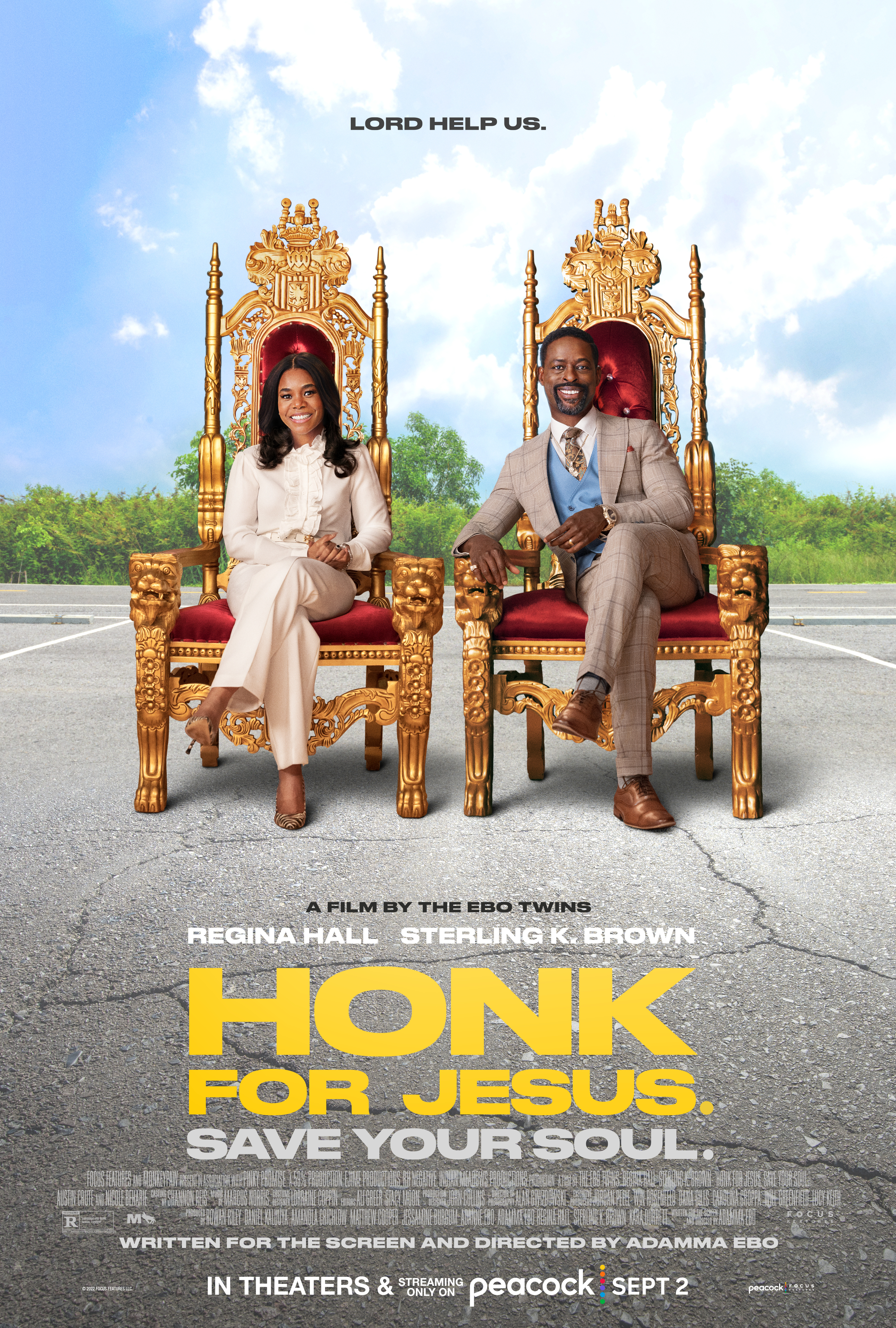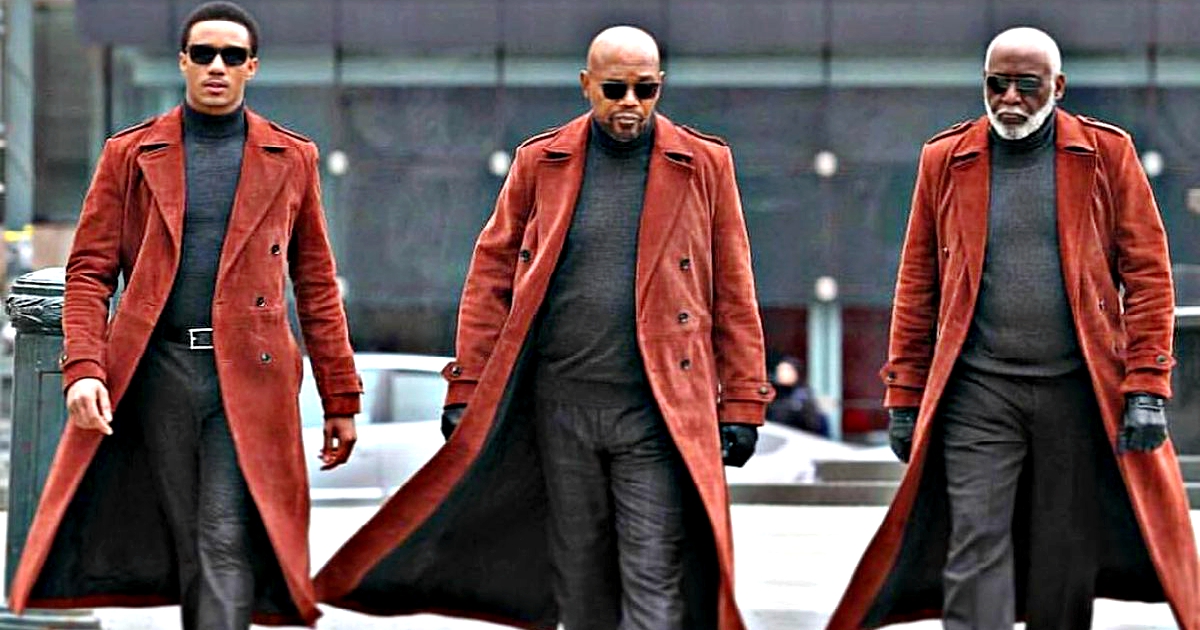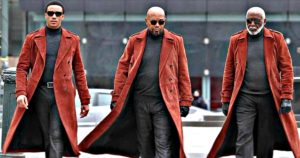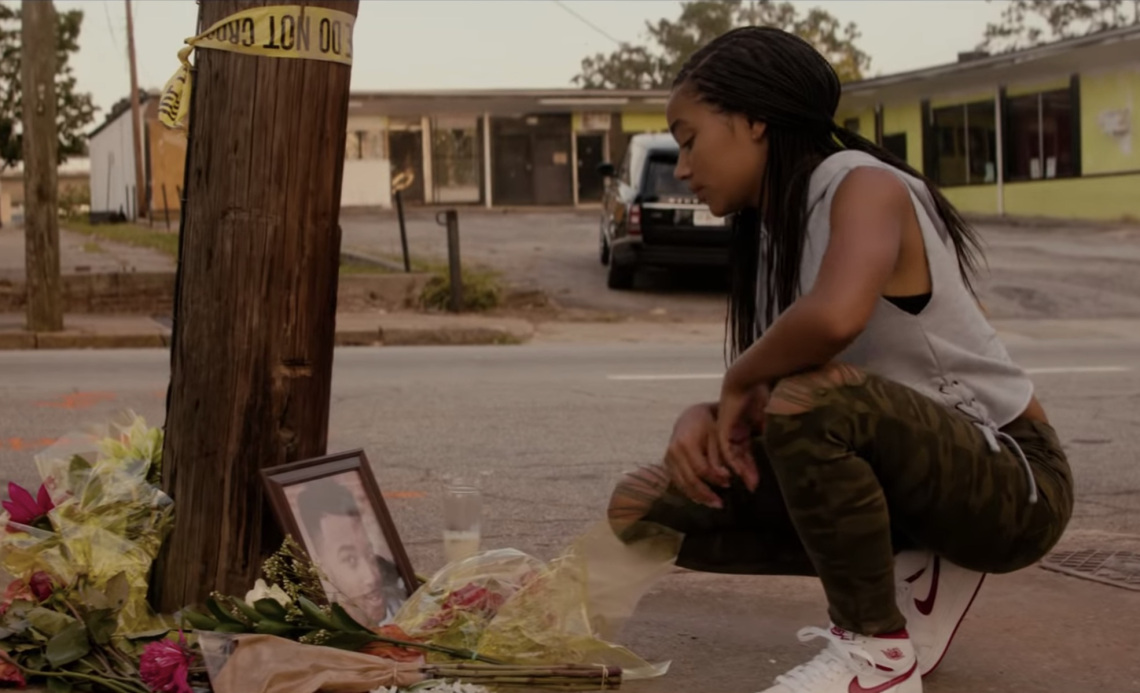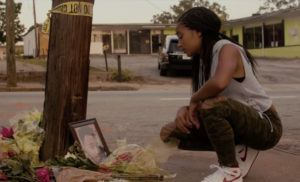Honk for Jesus. Save Your Soul
Posted on September 1, 2022 at 5:21 pm
B| Lowest Recommended Age: | Mature High Schooler |
| MPAA Rating: | Rated R for language and some sexual content |
| Profanity: | Very strong language |
| Alcohol/ Drugs: | Alcohol |
| Violence/ Scariness: | Tense emotional confrontations, some shoving |
| Diversity Issues: | A theme of the movie |
| Date Released to Theaters: | September 2, 2022 |
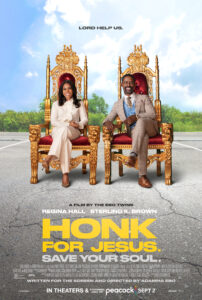
Trinitie’s husband is Pastor Lee-Curtis Childs (Sterling K. Brown) and we begin to understand that he and Trinitie, who has presided as First Lady at the church, have been wildly successful in building a congregation of 25,000, and richly rewarded in every sense of he word. We also begin to understand that there has been some very traumatic scandal. Lee-Curtis has brought in a documentary crew to film them as they try to come back from disgrace and return their church to its former glory.
This angle is wisely chosen because Lee-Curtis and Trinitie are essentially performers, even with each other. Lee-Curtis is certain that he can enlist the documentarian to be on his side and portray him as worthy of restoration to his previous position of prominence and respect. Trinitie is less sure of the filmmaker and less sure of Lee-Curtis’ ability to sustain the persona he thinks he can. She is even a little uncertain about herself. One of the most telling — and saddest — parts of the film is the way Trinitie tries to laugh when it is clear that she is anxious and scared. Why a laugh? She is trying to convey a lightness of spirit, the joy of being filled with the spirit, the sense that she is not ruffled, that Lee-Curtis’ transgressions are just jokes due to his own high spirits. She is exquisitely aware in every moment that they are not just preaching; they are or should be the best possible example of all that God can do for the followers.
We get a glimpse of what Lee-Curtiss and Trinitie might have been like in their early years with a young rival couple, both pastors, Shakura and Keon Sumpter (Nicole Beharie and Conphidance), their ambition and competitiveness not hidden behind their “praise the Lord” pieties. When both churches pick Easter Sunday for their big events, the Childs play a call on the Sumpters and, as with an encounter with a former church member in the mall, the result is a small masterpiece of simmering aggression bubbling up under a thin veneer of sweetness.
All of the performances are brilliantly conceived. Brown shows us a man whose entire life has been a performance. Lee-Curtis has deployed his natural magnetism to hide his true self from the world and to obtain the validation that he thinks will help him overcome his sense of shame. His near-frantic focus on surfaces is superbly realized by costume designer Lorraine Coppin, who created his designer looks. Hall gives another in a series of performances that show she can make any tone and genre work. The layers of emotion she shows us as Trinitie desperately tries to maintain an expression of confidence and joy in the spirit are heartbreaking. Near the end, as the script pushes too hard, she ends up in literal whiteface. The movie’s careful balance of satire while allowing for layered characters wobbles but even with the blankness painted over her features, we feel all of the suppressed anger and desperation she is experiencing. Her identity, her power, her reason for being is her position. Without that, who is she?
Beharie, who I called a breakthrough performer in 2009 gave what I picked as the top performance of 2020 in “Juneteenth,” continues to dazzle with her exquisitely precise work here as a pastor — not a First Lady — who understands the opportunity Lee-Curtis’ misbehavior has created. The scenes of the Childs and Sumpters are electric, the older couple seeing themselves in the younger and thus understanding exactly how much of a threat they are.
Writer/director Adamma Ebo, with her twin sister Adanne Ebo as producer, shows a strong vision and a gift for creating vivid, authentic characters. It is easy to make characters like these into caricatures, but she never lets them be less than fully human while never softening their flaws and failures. This is not a movie about a church scandal. It is a movie about people who struggle to find meaning and acceptance.
Parents should know that this film includes very strong language and sexual references, including predatory behavior and abuse.
Family discussion: What is it fair to expect from church leaders? How can people begin to atone for serious mistakes?
If you like this, try: “Elmer Gantry” and “The Eyes of Tammy Faye” and the documentaries “Say Amen Somebody,” “Marjoe” and “The Way Down” and the Henry Louis Gates miniseries “The Black Church”

